Global Vermicompost Market - Comprehensive Data-Driven Market Analysis & Strategic Outlook
The global vermicompost market will break away from the conventional picture of organic agriculture to create a larger ecosystem of sustainable cultivation. As immediate utility, vermicompost is valued for enriching soil, yet the future will expand its reach into fields that will redefine the relationship between agriculture and environmental management. Outside of the range of crop farming, vermicompost will become a key tool for soil rehabilitation and land restoration initiatives, allowing areas that have been plagued by excessive chemical applications to regain fertility naturally.
- Global vermicompost market valued at approximately USD 402 Billion in 2025, growing at a CAGR of around 14.8% through 2032, with potential to exceed USD 1056.7 Billion.
- Solid account for nearly 88.3% market revenues, driving innovation and expanding applications through intense research.
- Key trends driving growth: Rising global demand for organic food and sustainable farming inputs., Government incentives promoting organic agriculture and waste recycling.
- Opportunities include Expansion into urban farming and premium horticulture markets.
- Key insight: The market is set to grow exponentially in value over the next decade, highlighting significant growth opportunities.
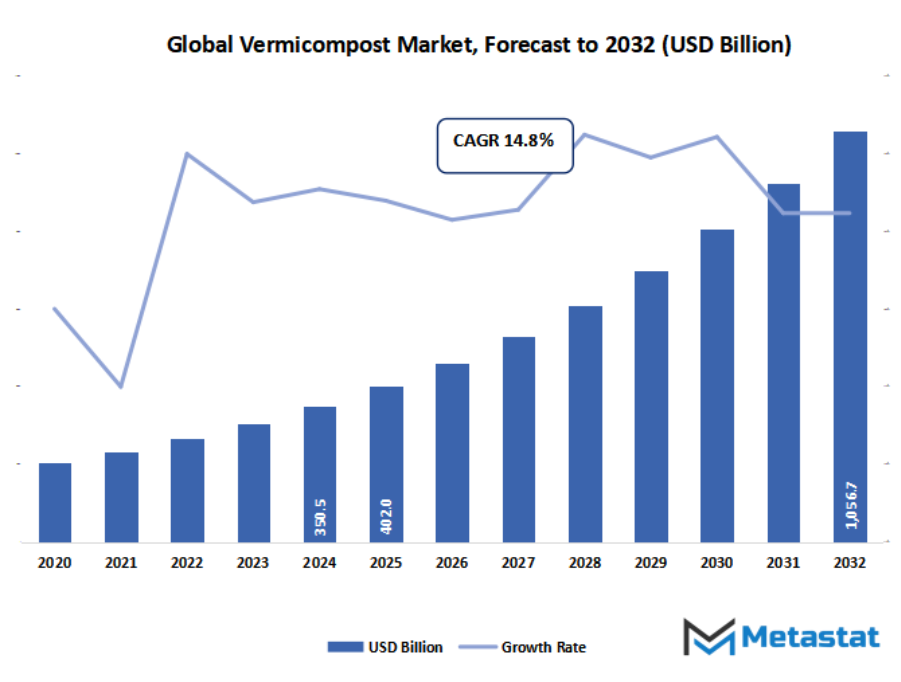
Could the growing worldwide shift in the direction of natural farming make vermicompost a mainstream opportunity to chemical fertilizers within the years ahead? How might innovations in large-scale waste management and sustainable agriculture disrupt conventional composting strategies and reshape the vermicompost marketplace? Will rising environmental worries and policy shifts accelerate the adoption of vermicompost, or will price and scalability demanding situations preserve returned its full ability?
This sector will not stay limited to agriculture alone but will expand into cities where green infrastructure will be promoted. As the cities grow, the use of vermicompost in rooftop gardens, vertical farming, and urban agriculture will become more significant. Its capacity to control soil moisture and encourage microbial health will help ensure that small urban areas will be able to sustain productive growth. The global vermicompost market will also influence waste management systems by converting waste streams of organic material into a commodity resource. Local governments and industries will increasingly consider vermicompost as a circular solution connecting agriculture with environmental sustainability.
Market Segmentation Analysis
The global vermicompost market is mainly classified based on Form, Application, End-Use.
By Form is further segmented into:
- Solid - Solid vermicompost will remain on top of the global vermicompost market due to ease in handling and storage. Future demand will be aided by increasing movement towards natural soil amendments. Solid form will continue to be favored by large-scale agricultural operations that are looking for sustainable and low-cost inputs in terms of crop productivity.
- Liquid - Liquid vermicompost will experience constant expansion in the global vermicompost market as it has a quick rate of absorption in plants. It will be utilized through drip irrigation and foliar sprays, providing accuracy in nutrient application. Liquid form will become highly sought after in horticulture and urban horticulture where space and resource utilization are critical.
By Application the market is divided into:
- Agriculture - Agriculture will remain the biggest application region in the global vermicompost market with farmers transitioning closer to sustainability. The destiny will see more cognizance on restoring soil fitness, minimizing chemical usage, and growing crop yields. Adoption will grow as governments encourage organic inputs to beautify food security and rural incomes.
- Horticulture - Horticulture will gain hugely from the global vermicompost market due to increased demand for fruits, vegetables, and flowers. Vermicompost will be sought after for its benefits of increasing soil aeration and water holding capacity in small gardens. Demand will be stimulated by growing greenhouse cultivation and consumer appetite for chemical-free vegetables and fruits both in the developed and emerging economies.
- Waste Management - Waste disposal will be a crucial sector for the global vermicompost market with increasing urbanization and food waste. Next-generation systems will incorporate vermicomposting in municipal and industrial waste streams, lightening landfill burden. Vermicompost will recycle not only organic waste but also convert it into a valuable input for agriculture and landscaping.
- Soil Remediation - Soil remediation will be a lucrative industry for the global vermicompost market because damaged lands need reviving. Vermicompost will neutralize pollutants, increase microbial activity, and restore fertility. Adoption will increase in areas prone to soil erosion and pollution, and hence it is a natural method of choice for sustainable land recovery projects.
By End-Use the market is further divided into:
- Organic Farming - Organic cultivation will stay at the core of the global vermicompost market, with growing consumer interest in clean-label food. Vermicompost will be an important input in preserving soil health and diversity in the absence of chemicals. Growth of certified organic land globally will continue to accelerate adoption of this natural solution for healthier crop production.
- Conventional Farming - Traditional farming will increasingly incorporate the global vermicompost market to offset chemical fertilizer application. Farmers will use vermicompost to revive soil health and control costs of production. Even in high-yielding systems, phased incorporation of vermicompost will ensure long-term sustainability, ensuring resilience against soil loss and environmental stress arising from intensive production systems.
- Landscaping - Landscaping activities will propel expansion for the global vermicompost market as urban parks and green spaces increase. Vermicompost will be preferred to keep lawns, parks, and roadside plants healthy by enhancing soil conditions and minimizing chemical usage. Municipal authorities and private developers will employ it for sustainable beautification and environmental stability.
- Gardening - Gardening will be a significant contributor to the global vermicompost market, particularly with increasing urban gardening and home farming. Vermicompost will be cherished for its convenience of use in pots and small fields to guarantee healthy plant growth. Future demand will be driven by consumer preferences for self-grown organic food.
|
Forecast Period |
2025-2032 |
|
Market Size in 2025 |
$402 Billion |
|
Market Size by 2032 |
$1056.7 Billion |
|
Growth Rate from 2025 to 2032 |
14.8% |
|
Base Year |
2024 |
|
Regions Covered |
North America, Europe, Asia-Pacific, South America, Middle East & Africa |
Geographic Dynamics
Based on geography, the global vermicompost market is divided into North America, Europe, Asia-Pacific, South America, and Middle East & Africa. North America is further divided in the U.S., Canada, and Mexico, whereas Europe consists of the UK, Germany, France, Italy, and Rest of Europe. Asia-Pacific is segmented into India, China, Japan, South Korea, and Rest of Asia-Pacific. The South America region includes Brazil, Argentina, and the Rest of South America, while the Middle East & Africa is categorized into GCC Countries, Egypt, South Africa, and Rest of Middle East & Africa.
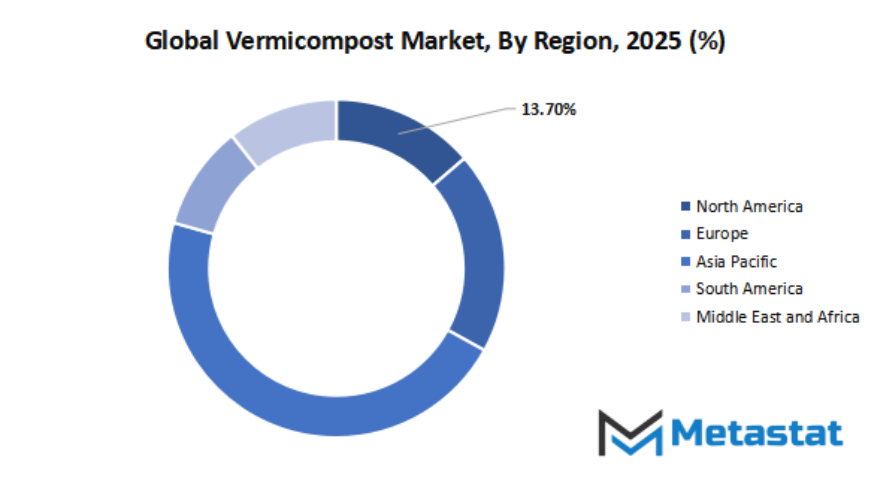
Competitive Landscape & Strategic Insights
The global vermicompost industry is attracting hobby as individuals and businesses circulate in the direction of natural and sustainable approaches of nurturing soil. Vermicompost, which is created by decomposing organic waste with the help of earthworms, is also appreciated for enhancing the fertility of the soil, its water-retaining capacity, and diminishing using chemical fertilizers. Not only does this eco-friendly system recycle waste, however it additionally fosters healthier flowers and encourages inexperienced farming. As environmental focus increases, the want for vermicompost will also be on the rise in both evolved and developing elements of the world.
The market is a combination of well-established global players and emerging regional ones that help influence the market. Some of the companies that have been identified as bestowing expertise and reliable supply of quality vermicompost include Vermicrop Organics, California Black Gold, Wiggly Wigglers, and VermiCo. They are accompanied by lesser but nonetheless significant players such as Farmers Worm Factory, Worm Power, Uncle Jim's Worm Farm, and The Worm Factory, which service local markets while also venturing into larger markets. They can provide products to suit various consumer needs, and this contributes to diversity and depth in the market.
Along with those gamers, corporations like Midwest BioSystems, The Vermiculture Shop, Worming, and Happy Valley Organics play a vital role in introducing progressive strategies of manufacturing and distribution. These players tend to consciousness at the community degree, getting farmers and gardeners involved in sustainable agricultural techniques. Companies along with Organic Recycling Solutions, Worm World International, and Sun Valley Worm Farm also illustrate how nearby producers are establishing themselves in the global marketplace by using producing incredible vermicompost that addresses increasing environmental and agricultural wishes.
The increasing significance of natural manufacturing and the momentum closer to reducing the usage of chemicals in agriculture will open up new space for each mature agencies and start-ups. As governments and conservationists promote sustainable waste control and inexperienced agriculture practices, vermicompost may be regarded as a essential input for more healthy soils and more crop yields. With this expanded momentum, the worldwide vermicompost marketplace not most effective will develop in phrases of length but will also foster extra cooperation among international leaders and local gamers in order that the fee of this natural fertilizer reaches farms, gardens, and communities anywhere.
Market Risks & Opportunities
Restraints & Challenges:
Low scalability and slow production cycles compared to chemical fertilizers. - Slow production costs and low scalability in relation to chemical fertilizers will remain a challenge for the global vermicompost market. Because vermicomposting relies on natural biological methods, manufacturing cannot be multiplied, which makes it tough to provide massive-scale deliver in agricultural industries wherein efficiency is paramount.
Lack of quality standardization and potential pathogen concerns. - Lack of standardization of quality and possible pathogen issues will also restrict broader adoption in the global vermicompost market. Lack of monitoring can lead to variations in nutrient levels and the presence of toxic organisms, lowering confidence among commercial buyers who demand uniform and safe fertilizer inputs.
Opportunities:
Expansion into urban farming and premium horticulture markets. - Foray into urban agriculture and high-end horticulture segments will create new avenues for the global vermicompost market. As vertical farming, roof gardens, and organic cultivation gain ground in cities, demand for environmentally friendly fertilizers will expand, putting vermicompost in the driving seat thanks to its natural origin and soil-fortifying qualities. The global vermicompost market will gain from growing interest in high-value crops where profitability directly relies on soil health and quality. High-end fruits, vegetables, and flowers grow better with organic enrichment, and this will propel farmers and horticulturists to use vermicompost as a future farm practice.
Forecast & Future Outlook
- Short-Term (1–2 Years): Recovery from COVID-19 disruptions with renewed testing demand as healthcare providers emphasize metabolic risk monitoring.
- Mid-Term (3–5 Years): Greater automation and multiplex assay adoption improve throughput and cost efficiency, increasing clinical adoption.
- Long-Term (6–10 Years): Potential integration into routine metabolic screening programs globally, supported by replacement of conventional tests with advanced biomarker panels.
Market size is forecast to rise from USD 402 Billion in 2025 to over USD 1056.7 Billion by 2032. Vermicompost will maintain dominance but face growing competition from emerging formats.
Climate resilience is another dimension that will be revealed. With growing worries about water shortage and food security, vermicompost will function as a mechanism to enhance soil water retention and enhance crop resilience against adverse conditions. In the longer term, this sector will impact emerging lines of research, spurring vermicompost-based biofertilizer innovations. What starts life as an agricultural input will develop into a keystone of regenerative systems that link farming, urban development, and waste reduction. The global vermicompost market will therefore stretch its relevance far beyond its traditional application, leaving its stamp as a propellant of ecological equilibrium and sustainable growth in the years ahead.
Report Coverage
This research report categorizes the Vermicompost market based on various segments and regions, forecasts revenue growth, and analyzes trends in each submarket. The report analyses the key growth drivers, opportunities, and challenges influencing the Vermicompost market. Recent market developments and competitive strategies such as expansion, type launch, development, partnership, merger, and acquisition have been included to draw the competitive landscape in the market. The report strategically identifies and profiles the key market players and analyses their core competencies in each sub-segment of the Vermicompost market.
Vermicompost Market Key Segments:
By Form
- Solid
- Liquid
By Application
- Agriculture
- Horticulture
- Waste Management
- Soil Remediation
By End-Use
- Organic Farming
- Conventional Farming
- Landscaping
- Gardening
Key Global Vermicompost Industry Players
- Vermicrop Organics
- California Black Gold
- Wiggly Wigglers
- VermiCo
- Farmers Worm Factory
- Worm Power
- Uncle Jim’s Worm Farm
- The Worm Factory
- Midwest BioSystems
- The Vermiculture Shop
- Worming
- Happy Valley Organics
- Organic Recycling Solutions
- Worm World International
- Sun Valley Worm Farm
WHAT REPORT PROVIDES
- Full in-depth analysis of the parent Industry
- Important changes in market and its dynamics
- Segmentation details of the market
- Former, on-going, and projected market analysis in terms of volume and value
- Assessment of niche industry developments
- Market share analysis
- Key strategies of major players
- Emerging segments and regional growth potential



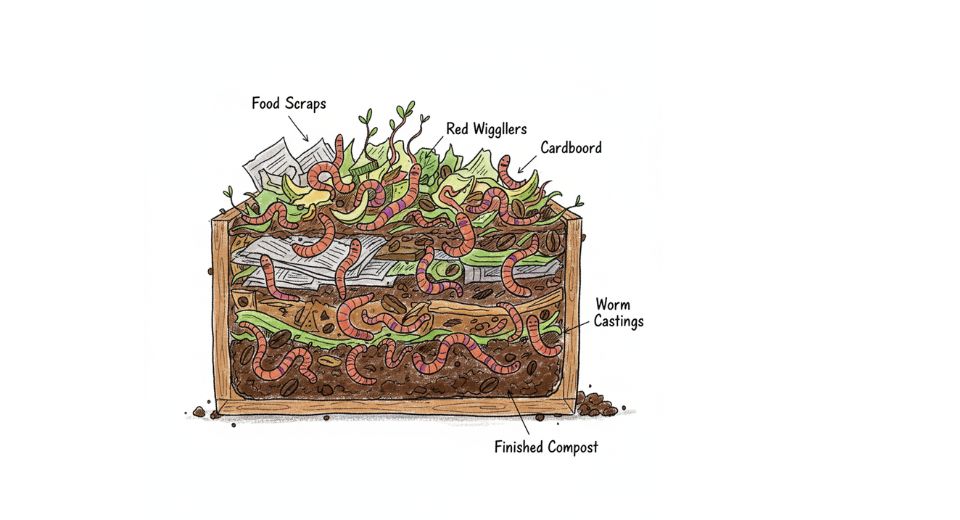
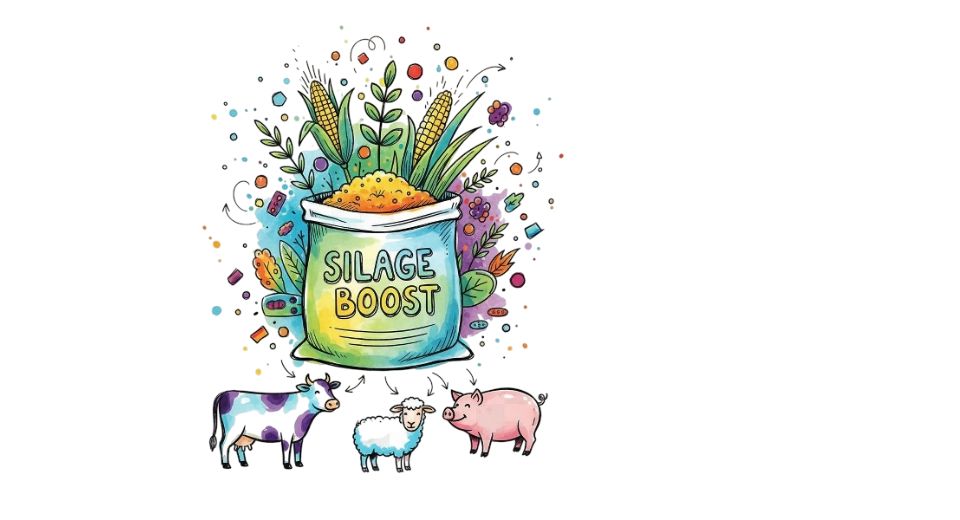
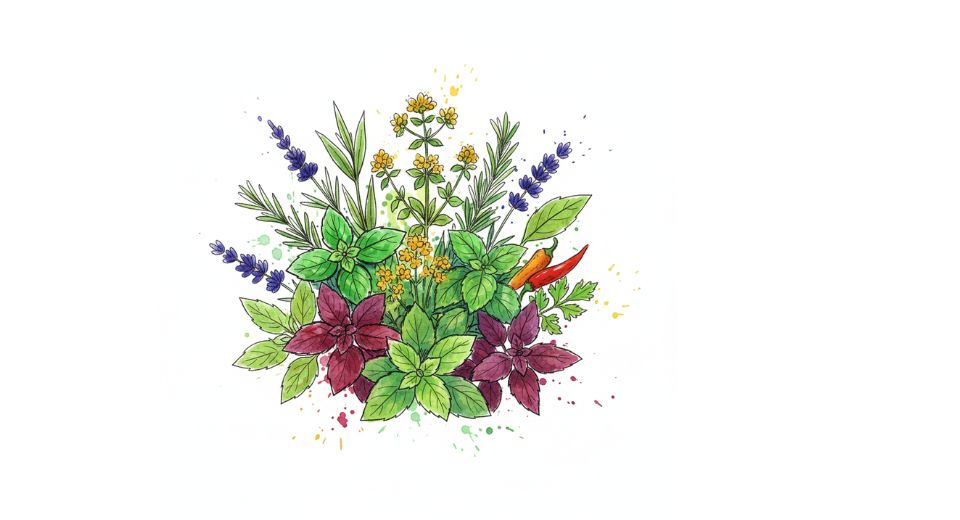
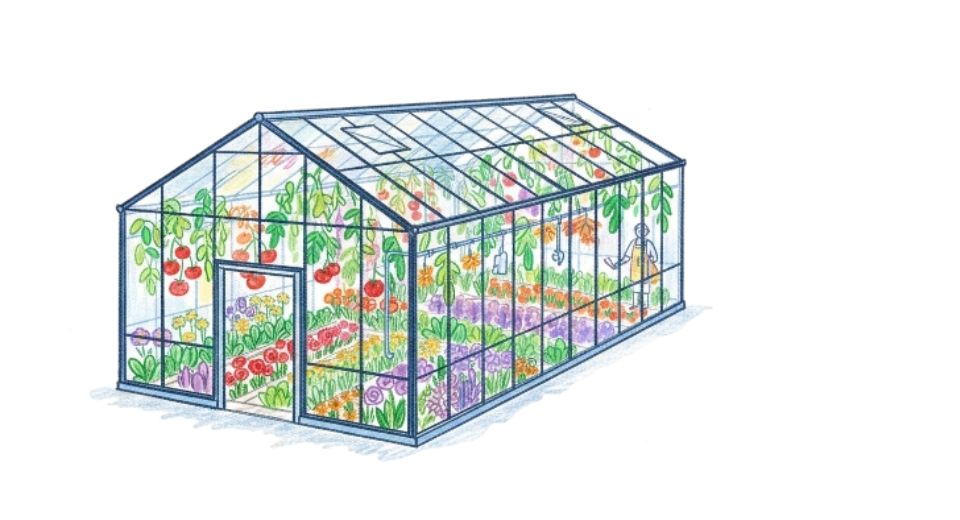

 US: +1 3023308252
US: +1 3023308252






